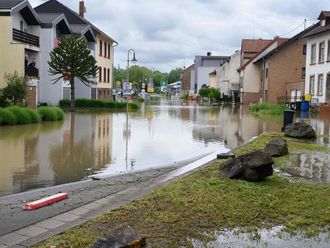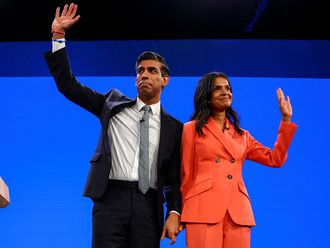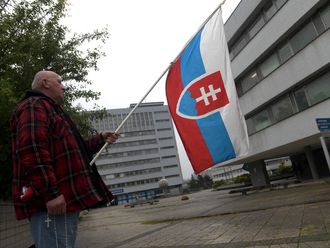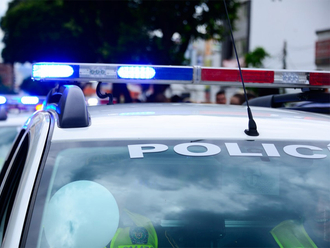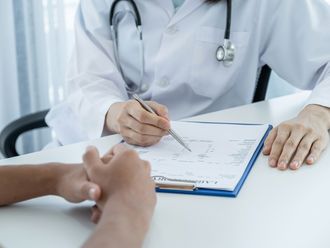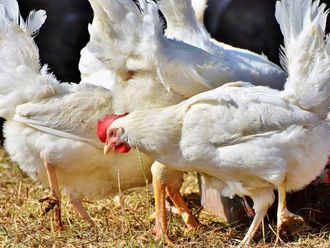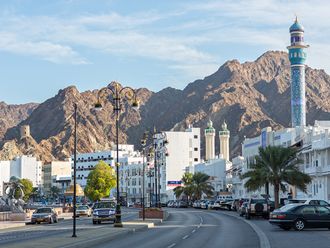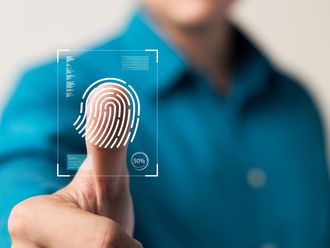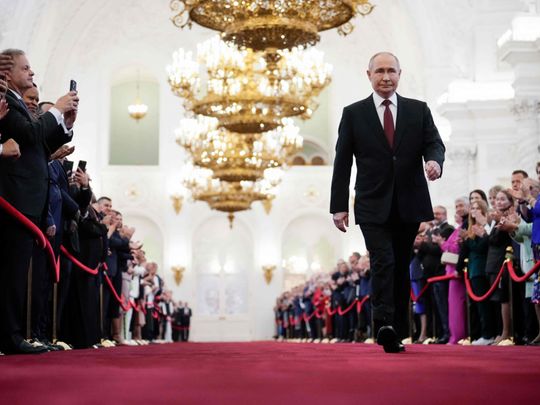
MOSCOW: President Vladimir Putin vowed at a lavish inauguration on Tuesday to deliver victory to Russians, embarking on a record-breaking fifth term with more power than ever.
Putin, however, conceded that Russia was going through a “difficult” period, an apparent reference to the unprecedented sanctions packages the West has imposed on Moscow for having launched full-scale military hostilities in Ukraine more than two years ago.
The 71-year-old Kremlin chief has ruled Russia since the turn of the century, securing a fresh six-year mandate in March after winning presidential elections devoid of all opposition.
The inauguration ceremony, which included a military procession and Orthodox prayer service, was broadcast live on major Russian television channels.
European countries including Poland, Germany and the Czech Republic signalled they would not send representatives amid soured tensions over the conflict in Ukraine.
“We are a united and great nation, and together we will overcome all obstacles, realise everything we have planned, and together, we will win,” the Russian leader said after being sworn in to office.
Putin, who has said that his forces will be victorious in Ukraine, whatever the cost, said the country would emerge “with dignity and become even stronger”.
After standing alone in the rain and overseeing columns of armed guards and calvary parade in ceremonial uniform, Putin was blessed by the leader of the Orthodox Chuch, Patriarch Kirill.
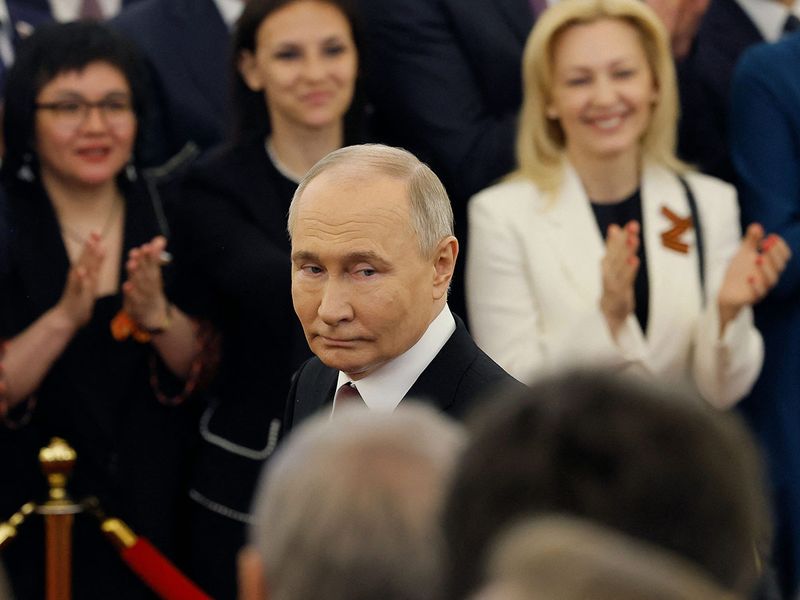
Already the longest-serving Kremlin ruler since Soviet dictator Josef Stalin, 71-year-old Putin begins another six-year term after gaining a record 87 per cent in March’s election.
Putin has ruled Russia since 2000, retaining power as prime minister when he installed Dmitry Medvedev as president from 2008-2012 to comply with term limits.
He removed that obstacle in 2020 by changing the constitution to grant himself up to two more terms, enabling him to remain president potentially to 2036, when he’ll be 83.
Russia’s economy is adapting to unprecedented international sanctions imposed in response to the war as the government pivots away from Europe toward China, India and countries in the so-called Global South.
Putin plans to visit China next week in the first foreign visit of his new term, underlining the importance of his relationship with that country’s president, Xi Jinping.
China has helped Russia weather the impact of sanctions by the US and its Group of Seven allies and provided diplomatic support for Putin as part of a “no limits” friendship even as Beijing declares that it has a neutral stance on the war.
The Russian president, who’s urged countries to trade in national currencies and push out the dollar, will host a summit of the BRICS group of nations in October. The organization that includes Brazil, Russia, India, China and South Africa expanded in January to take in new member states including the United Arab Emirates and Egypt, while Saudi Arabia is still weighing an invitation to join.
“May God help you continue carrying out your servitude that he himself has entrusted on you,” the Orthodox leader said. He compared Putin to medieval ruler Alexander Nevsky and wished him eternal rule.
“Serving Russia is a huge honour, responsibility and sacred duty,” Putin had said in the Kremlin’s gilded Saint Andrew’s Hall.
He was greeted by applause by Russian officials and military top brass, who sang the national anthem and applauded him.
Government officials and foreign diplomats in Moscow were invited to the ceremony, including French ambassador Pierre Levy.
The inauguration comes two days before Russia marks Victory Day on May 9, an event that has taken on renewed symbolism as Putin compares his offensive in Ukraine to Russia’s fight against Nazi Germany in World War II.
Authorities erected barriers throughout Moscow’s city centre ahead of both events.
Shake-up
Putin kicks off his six-year term emboldened by advances on the battlefield in Ukraine and sustained economic growth, despite a barrage of Western sanctions.
His victory in March means that he is likely to become the longest-serving ruler of Russia in a century, beating out Soviet dictator Joseph Stalin.
Russia’s army held off a much-hyped Ukrainian counter-offensive last year, and it has since made gains on the front lines as Kyiv struggles with ammunition and manpower shortages.
But as the conflict stretches into a third year without an obvious resolution and the economy teeters towards overheating, Putin faces significant challenges in his fifth term.
Inflation - a historic source of angst amongst the Russian population - remains persistent as Moscow adopts what analysts have called a “military Keynesianism”, pouring billions of resources into the war effort.
The Kremlin has also failed to quell fears it will announce a new round of unpopular mobilisation in Putin’s new term, and discontent among the wives of men who have been drafted continues to simmer.
Some analysts have suggested Putin may use the inauguration to shake up his government, which is obligated to resign ahead of a new presidential term.
Russia’s government was dissolved on Tuesday in accordance with the constitution after Putin was inaugurated for a fifth term.
The government’s dissolution was announced in an order signed by Prime Minister Mikhail Mishustin.
Formation of a new government will start with Putin putting forward the name of the next prime minister for approval by the State Duma, the lower house of parliament.


